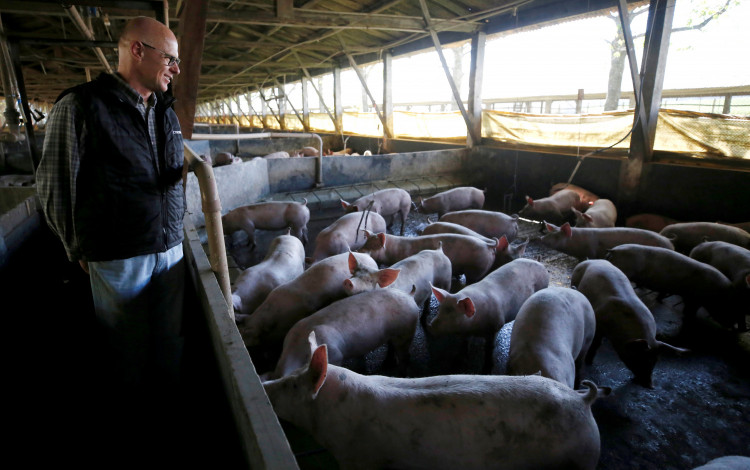China settled on purchasing more Australian beef as the African swine fever cuts through its hog output which might result in a pork shortage. The country's imports of Australian beef ballooned by 66 percent to 72, 460 tons from January to April of 2019.
China's imports of beef jumped 90 percent a year since 2009 and it continued to increase since the first outbreak of the African swine fever was reported in August of 2018.
The rise in import is due to the increasing demand from middle-class consumers. Australian beef producers, including Scott de Bruin's Wagyu cattle ranch, saw opportunities to the high demand of beef in China. The 3,050-hectare Mayura station of de Bruin at Millicent in South Australia currently raises around 8,500 pure breed Wagyu cattle.
Mr. de Bruin said that the orders from China of wagyu beef, including purchases of the Nest in Shanghai's historic Puxi district and Beijing's Hyatt, increased by 50 percent in May from the previous year. The sales of the ranch lifted after the outbreak of African swine fever in the world's biggest consumer and producer of pork started in 2019.
The African swine fever raised the prices of pork and the Chinese consumers seek out for alternatives for the meat. China's domestic production of pig supplies significantly declined after many cases of the outbreaks of the contagious and deadly swine disease.
The imports of the country of pork, beef, seafood, poultry and sheep meat from other nations rose. China's pig supply was projected to lead to pig-meat shortages following its decline by 20 to 30 percent this year.
According to reports, the African swine fever continues to spread not only in China but also in its neighbors in Asia. Reports said that the contagious disease crossed the borders of Mongolia, Vietnam, and Cambodia.
The disease ripped through almost every province in China in just 9 months. According to Zhu Zengyong of the Chinese Academy of Agriculture Sciences, in March, China's whole amount of breeding sows on hand fell by 21 percent year on year, which indicates that we will see an apparent decline in the supply of live pigs in 2019.
Tim Ryan, a Singapore-based market analyst with trade group Meat & Livestock Australia, said that the African swine fever will be the biggest influence on global meat markets possibly for the next few years, if not possibly the decade.
The China Daily newspaper reported last month that China's pork import may surge 40% to 1.7 million tons this year, before increasing to 2.1 million tons in 2020.





